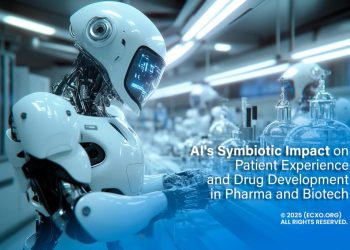The Impact of Generative AI for Manufacturing
Generative AI for manufacturing marks a revolutionary shift in how production processes are conceived and executed. By harnessing the power of machine learning algorithms, manufacturers can now design complex products with unprecedented precision and creativity. This technology enables the rapid prototyping of designs, significantly reducing both the time and cost associated with traditional manufacturing methods. Through the automation of design tasks, companies can focus more on innovation and less on repetitive tasks.
Furthermore, generative AI optimizes material usage, leading to more sustainable manufacturing practices. By analyzing countless design permutations, AI can suggest the most efficient use of materials, thus minimizing waste. This not only contributes to environmental conservation but also results in substantial cost savings for manufacturers. The benefits extend beyond economics to include enhanced product quality, as AI-driven designs often surpass human-created ones in terms of functionality and aesthetics.
Another significant advantage of generative AI in manufacturing is its ability to facilitate mass customization. By enabling the rapid and cost-effective production of unique items, manufacturers can better meet consumer demands for personalized products. This shift towards customization aligns with current market trends where consumers seek products tailored to their specific needs and preferences. As a result, companies that adopt generative AI can gain a competitive edge by offering more diverse and customized product lines https://dedicatted.com/services/generative-ai/manufacturing.
Real-World Applications of Generative AI in Manufacturing
Generative AI has already made tangible impacts across various sectors within the manufacturing industry. In the automotive industry, companies are using AI to design lightweight yet durable vehicle parts, thereby improving fuel efficiency and performance. By simulating and optimizing the design process, automakers can experiment with innovative structures that would be impossible to create using traditional methods.
In aerospace, generative AI plays a crucial role in the development of components that meet stringent safety and performance standards. For instance, AI algorithms can optimize the design of turbine blades and other critical parts, enhancing their efficiency and reliability. The aerospace industry benefits from AI’s ability to produce designs that are both lighter and stronger, leading to improved aircraft performance and reduced operational costs.
The consumer electronics sector is also leveraging generative AI to innovate product design and manufacturing processes. Companies are using AI to create intricate circuit board layouts and ergonomic device casings, resulting in more compact and efficient electronics. This application of AI not only speeds up the design process but also allows manufacturers to explore novel product solutions that enhance user experience.
Challenges and Limitations of Generative AI for Manufacturing
Despite its numerous benefits, implementing generative AI in manufacturing comes with its own set of challenges. One of the primary obstacles is the significant initial investment required for AI technologies. The costs associated with acquiring advanced hardware, software, and skilled personnel can be prohibitive for small to medium-sized enterprises. Additionally, the integration of AI systems into existing manufacturing processes can be complex and time-consuming.
Another limitation is the current lack of standardization in AI technologies. With multiple platforms and solutions available, manufacturers may face difficulties in selecting the most appropriate systems for their specific needs. Moreover, the rapid pace of AI development means that technologies can quickly become outdated, posing a risk of obsolescence. This dynamic environment requires companies to be agile and adaptable in their approach to AI adoption.
Finally, there are ethical and legal considerations related to the use of AI in manufacturing. Issues such as data privacy, intellectual property rights, and the potential displacement of human workers must be carefully managed. Companies need to establish clear policies and frameworks to address these concerns, ensuring that the benefits of AI are realized without compromising ethical standards or social responsibility.
Embracing the Future of Manufacturing with Generative AI
Generative AI for manufacturing presents a transformative opportunity for industries seeking to innovate and remain competitive in a rapidly evolving market. By leveraging AI technologies, companies can enhance their design processes, optimize resource use, and offer customized products that align with consumer demands. The successful implementation of AI in manufacturing requires strategic planning, investment in technology and skills, and a commitment to ethical practices.
As the manufacturing landscape continues to evolve, companies that embrace generative AI will likely lead the way in shaping the future of production. By staying informed about the latest developments in AI technologies and actively integrating them into their operations, manufacturers can drive innovation and sustainability. The journey towards an AI-driven manufacturing ecosystem is not without its challenges, but the potential benefits far outweigh the obstacles.
As you consider the integration of generative AI into your manufacturing processes, take the time to evaluate the specific needs and opportunities within your organization. Engage with AI experts and industry leaders to gain insights and guidance on best practices. By investing in generative AI today, you position your company for success in the dynamic world of modern manufacturing. Embrace the future, and let AI-driven innovation propel your business forward.
















